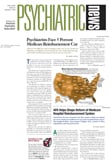Rising costs of prescription drugs continue to fuel efforts to permit drug reimportation.
Illinois Gov. Rod Blagojevich (D) on October 26 released a report concluding that the state would save an estimated $56.5 million annually if all eligible prescriptions financed by state funds were filled by mail order through a Canadian pharmacy. This figure is 17 percent of the $340 million the state spent last year on prescription drugs.
State workers and retirees could save an average of $1,008 a year each on copays and other deductibles, assuming prescriptions for three medicines each month.
The study was directed by two state special advocates appointed by the governor, with the help of state pharmacy regulators and public health officials. The authors reported that drugs sold in Canadian pharmacies are manufactured in facilities approved by Canadian regulators and that the Canadian regulatory system provides health, safety, and effectiveness protections “substantially equivalent” to those in the United States.
Jeff Trewhitt, spokesperson for the Pharmaceutical Research and Manufacturers of America, was quoted in USA Today on October 27 as saying, “We have always deferred to the Food and Drug Administration’s evaluation of the situation, and the FDA says there’s a serious safety issue involved here.”
That same day the Washington Post reported that Minnesota Gov. Tim Pawlenty (R) would announce a plan to establish a Web site that would direct state residents to state-approved Canadian pharmacies.
Pawlenty said, “These proposals are not perfect and not the long-term solution, but they do offer the potential for near-term relief, and [they] put pressure on the federal government to consider change.”
Also on October 27 the Wall Street Journal reported that state pharmacy boards, which regulate and license pharmacies, are “increasingly cracking down” on storefront companies that help U.S. residents purchase prescription drugs from Canada. Boards in Montana, New York, and Oklahoma have closed storefront companies through warning letters or court orders. The Maryland Board of Pharmacy planned to send warning letters to six storefront companies in the next few weeks, according to the story.
In September the U.S. Department of Justice filed lawsuits against RxDepot Canada LLC and Rx Depot Inc., two storefront companies. On November 6 a federal judge in Oklahoma cleared the way for the government to shut down Rx Depot. The judge ruled that the company “facilitate[s] illegal activity determined by Congress to harm the public interest.”
In related news, the Washington Post published a five-part series, “Pharmaceutical Roulette,” during the week of October 21, which describes a shadow market in American pharmaceuticals.
An editorial in the October 27 Washington Post claims, “Exploiting legal loopholes, felons regularly divert discounted drugs from the nursing homes they were intended for and resell them at high prices; distribute fake drugs using packaging that makes them impossible to distinguish from the real thing; and import drugs from abroad without subjecting them to any safety tests at all.” ▪
